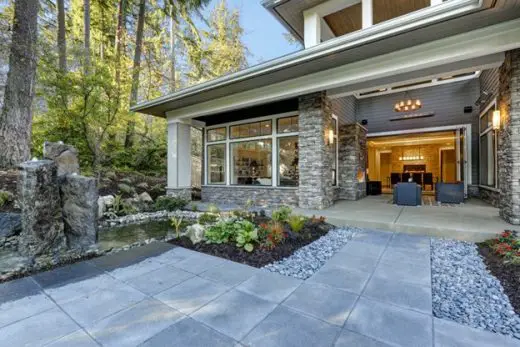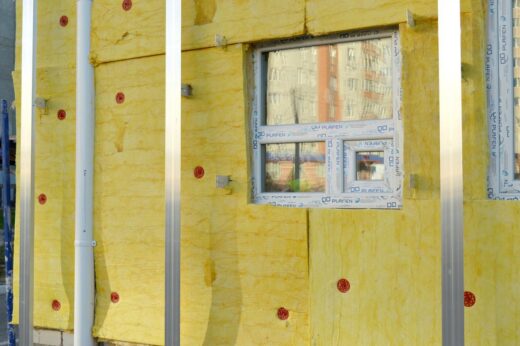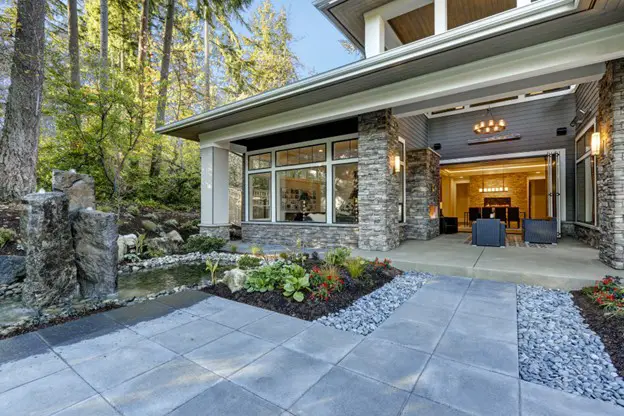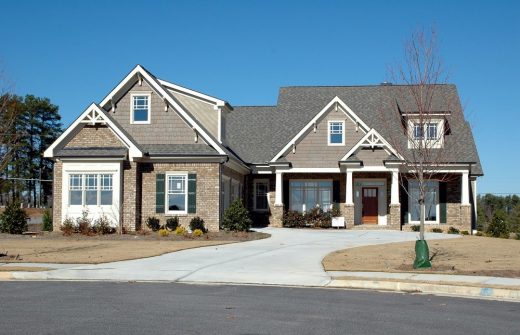New construction homes guide, First-time homebuyer advice, House buying tips, Property buy
New Construction Homes – Find Your Perfect First Home
31 Mar 2023

Photo Credit: Canava
New Construction Homes : How to Navigate the Market and Find Your Perfect First Home
If you’re on the hunt for your first home or planning to invest in real estate, you may have considered the option of purchasing a new construction property. New construction homes offer customization and modern amenities that can’t always be found in older homes.
However, navigating the market and finding the perfect new construction home can be daunting. There are many factors to consider, such as location, builder reputation, budget, and so many other things. So here, tried to bring some useful considerations while buying a new home. Whether you’re a first-time homebuyer or a seasoned pro, this guide will provide the information you need to make an informed decision and find your dream home.
Benefits of buying a new construction home
Buying a new construction home comes with many benefits. For one, you’ll be able to customize your home to your specific tastes and needs. From the layout to the finishes, you’ll be able to create a truly unique home.
Additionally, new construction homes are typically built with the latest and greatest technology and materials, which can result in lower energy bills and less maintenance over time. Moreover, many new construction homes come with warranties and guarantees, giving you peace of mind knowing that your investment is protected.
Moreover, buying a new house for renting will keep your tenant happy as people love to live in a newly constructed house for a long time. So it will decrease your cost of tenant turnover and increase your return on investment (ROI) on the property for a long time.
However, it’s important to remember that new construction homes can come with a higher price tag than older homes. Additionally, the customization process can add up quickly, so it’s important to budget accordingly. Despite these potential drawbacks, many homebuyers find that the benefits of purchasing a new construction home outweigh the costs.
Understanding the new construction home market
Before you begin your search for a new construction home, it’s important to have a basic understanding of the market. New construction homes are typically built by a handful of large builders who have communities and neighborhoods throughout the country. These builders have a reputation for quality and reliability and are often the go-to choice for homebuyers looking for a new construction property.
However, there are also smaller builders and custom home builders who may offer more unique and personalized options. It’s important to do your research and consider all of your options when searching for a new construction home. Additionally, be aware that the new construction market can be highly competitive, with many buyers vying for the same properties. As a result, it’s important to be prepared and act quickly when you find a home that you love.
Factors to consider when buying a new construction home
When buying a new construction home, there are many factors to consider. One of the most important is location. Consider the neighborhood, school district, and proximity to shopping, dining, and entertainment. Additionally, think about the long-term value of the home and the potential for appreciation over time.
Another important factor is the reputation of the builder. Look for reviews and ratings online, and consider talking to other homeowners in the community to get a sense of their experience with the builder. Additionally, consider the floor plan and home design. Does the layout fit your needs and lifestyle? Are there customization options that will allow you to make the home your own?
Finally, it’s important to consider your budget. New construction homes can come with a higher price tag than older homes, so it’s important to be realistic about what you can afford. Additionally, remember that the customization process can add up quickly, so it’s important to budget accordingly. Here are some factors to consider when buying a new construction home:
- Location: Consider the location of the new construction home in terms of proximity to schools, shopping centers, public transportation, and other amenities.
- Energy efficiency: Look for homes with energy-efficient features such as Energy Star-rated appliances, high-efficiency heating and cooling systems, and insulation.
- Homeowner association (HOA): Understand the HOA rules and fees associated with the new construction home. Make sure to factor these costs into your budget.
Budgeting for a new construction home
When it comes to budgeting for a new construction home, it’s important to be realistic about what you can afford. Start by getting pre-approved for a mortgage, which will give you a sense of your budget and what you can afford. Moreover, consider the cost of customization and upgrades. While these can add value to your home, they can also add up quickly. Be sure to factor these costs into your budget and consider where you can make cuts if necessary.
Finally, it’s important to consider the long-term costs of owning a new construction home. While new homes may come with lower maintenance costs in the short term, they can also come with higher energy bills and other expenses over time. Be sure to factor these costs into your budget and consider the long-term value of the home when making your decision.
Finding the right builder
When it comes to finding the right builder for your new construction home, there are a few key things to consider. First and foremost, look for a builder with a strong reputation for quality and reliability. Consider reading reviews and ratings online, and talk to other homeowners in the community to get a sense of their experience with the builder.
Additionally, consider the builder’s experience and track record. Have they built homes in the area before? Do they have a portfolio of successful projects that demonstrate their expertise? Finally, consider the builder’s communication and customer service. Are they responsive to your questions and concerns? Do they provide regular updates throughout the construction process?
“Finding the right builder is always challenging unless you have in-depth knowledge about the market, so it would be better to hire a local real estate agent. It will help you get the right builder hassle-free and save you from any possible fraud and unforeseeable risk,” says John Myers, founder of Myers & Myers Real Estate.
Evaluating floor plans and home designs
Once you’ve found a builder that you trust, it’s time to evaluate the floor plans and home designs that they offer. Consider your lifestyle and needs, and look for a floor plan that fits your family and lifestyle. The following things must be considered while evaluating floor plans and home design –
- Layout and flow: Consider how the floor plan flows and if it meets your lifestyle needs. For example, if you entertain often, an open floor plan may be more desirable.
- Room sizes and functionality: Make sure that the room sizes and functionality of each space fit your needs. Consider factors such as the number of bedrooms, bathrooms, and storage space.
- Natural light and ventilation: Consider the placement of windows and doors to ensure that the home gets ample natural light and ventilation.
- Accessibility and safety: Evaluate the accessibility and safety of the home. Consider factors such as the width of doorways and hallways, the placement of light switches, and the presence of stairs.
- Storage space: Consider the amount of storage space available in the home. This includes closet space, kitchen cabinets, and other storage areas.
Customizing your new construction home
One of the biggest benefits of purchasing a new construction home is the ability to customize it to your specific tastes and needs. From the layout to the finishes, you’ll have the ability to create a home that is truly one-of-a-kind. However, it’s important to keep in mind that customization can add up quickly, so it’s important to budget accordingly.
When customizing your new construction home, consider upgrades that will add value to the home over time. For example, consider upgrading to energy-efficient appliances or adding high-quality finishes that will stand the test of time. Moreover, it must suit your family’s needs and lifestyle, and look for customization options that will make the home more functional and livable.
The construction process and timeline
Once you’ve chosen a builder and floor plan, it’s time to begin the construction process. Remember that the timeline for new construction homes can vary depending on various factors, including weather, permitting, and other unforeseen circumstances. Moreover, you should also be prepared for unexpected delays and setbacks and factor these into your timeline.
Throughout the construction process, stay in communication with your builder and ask questions whenever necessary. Additionally, consider hiring a building inspector to ensure the home is up to code and meets your expectations.
Inspections and warranties for new construction homes
Inspections and warranties are important aspects of purchasing a new construction home. It makes your investment safe and secure. Here inspections include two things first, home inspection, and the second municipal inspection. For home inspection, hire a professional home inspector to inspect the home before closing thoroughly. This will help to identify any construction or installation issues that need to be addressed. Whereas for municipal inspections, ensure the builder obtains all required municipal inspections and certifications.
There are three types of warranty, which you must consider while taking possession –
- Builder warranty: Most builders offer a warranty on new construction homes, typically for one to two years. This warranty covers defects in materials and workmanship.
- Manufacturer warranties: Appliances and other components of the home may come with their own manufacturer warranties. Be sure to understand the terms and length of these warranties.
- Extended warranty: Consider purchasing an extended warranty for added protection beyond the builder’s warranty.
It’s important to carefully review and understand the terms and limitations of all warranties before purchasing a new construction home. Remember that warranties typically only cover defects and not normal wear and tear or damage caused by neglect or misuse.
Find Your Perfect First Home – Final thought
Purchasing a new construction home can be a great investment for first-time homebuyers. However, it’s important to research and consider all your options when navigating the market. From finding the right builder to budgeting for customization and upgrades, there are many factors to consider when purchasing a new construction home.
Moreover, don’t forget to interview other first-time home buyers; their experience and overview will give you a future glimpse of your dream home and will prepare you for some necessary precautions and checklists.
Comments on this New construction homes: find perfect first home article are welcome.
Home Construction
Building and Home Construction Posts
Estimate new home construction costs
Tips for building a modern home
5 architectural features to enhance your home
Things to check while selecting commercial insulation

Building
Residential Architecture Articles
Comments / photos for the New construction homes: find perfect first home page welcome






